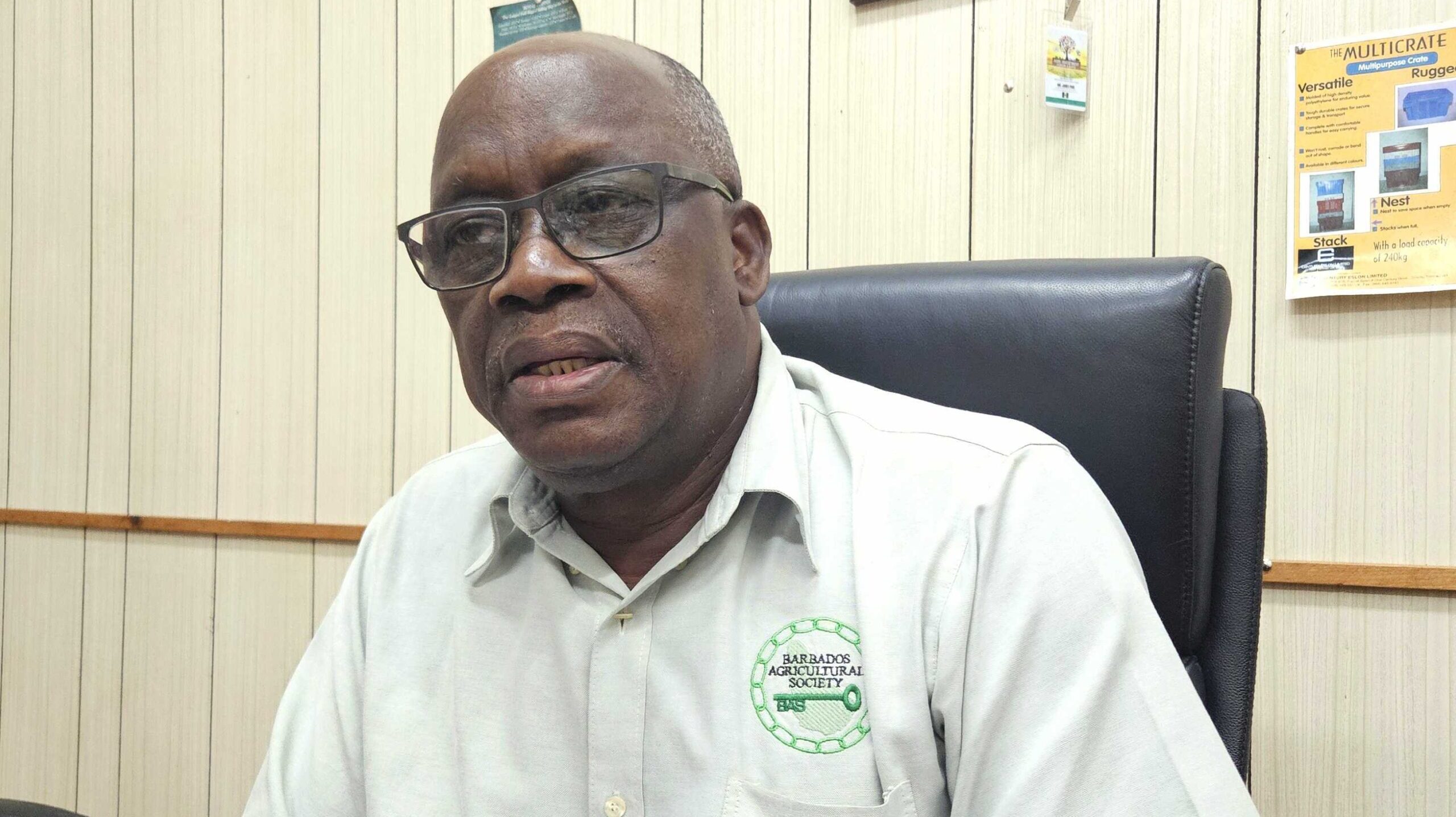Barbados Agricultural Society CEO Addresses Supply Disruptions and Transparency Concerns in Poultry Industry

October 31, 2024
Barbados Agricultural Society CEO addresses poultry supply disruptions, defends transparency efforts amid criticism from Minister of Agriculture. Emphasizes industry complexities and forecasts self-adjustment of reported shortages.
The head of the Barbados Agricultural Society (BAS) on Wednesday blamed a lack of transparency from poultry producers for recent supply disruptions, whilst denying allegations that his organisation failed to prevent empty supermarket shelves.
CEO James Paul defended his position after facing criticism from Minister of Agriculture Indar Weir for previously denying the existence of supply issues, as well as a call for him to apologise to the public for the misinformation.
“I didn’t fail,” Paul said during the Down to Brass Tacks call-in radio programme on Wednesday.
“We have a specific role in the industry, and we have always worked very closely with the ministry and all stakeholders to try and ascertain what the issue is and to ensure that things like these don’t happen,” he said, defending the role of the association.
He noted that BAS relies on data from producers and suppliers to forecast supply accurately and claims that this data was inadequate to predict the recently reported shortages.
“Information that I got indicated that there should not have been a problem,” he said.
He further admitted that “the industry is going through some difficulty” but that, based on information received, “the situation will soon adjust itself”.
Further explaining the complexity of poultry production, Paul dismissed any notion that resolving these supply issues is as simple as “going to the back of the supermarket storeroom to get the goods once they are ordered”.
“It takes ten weeks to get chicken from the state of being hatched onto the shelf. So, there are people who would want to think that producing chicken is just like that. It is not. Let me just make that very clear,” he said.
Despite visible gaps, Paul steered clear of using the term “shortage”, arguing that it could lead to unnecessary panic.
“One of the things that we try to avoid saying in the industry is ‘shortage’, because once you use the word shortage, it sends a different message to the consumer. It can cause people to panic,” he said, insisting that the industry was “steadily working to resolve whatever issues they are facing”.
The top agriculture spokesperson further expressed frustration over a lack of coordination and transparency from producers, which he believes impedes effective supply management, stating: “We can only help producers in the industry if they share information with us.”
“They withhold information for different reasons — tax purposes or… [otherwise]. This is the problem that we face,” he said, also mentioning a lack of cooperation as a challenge faced by the BAS and other similar associations.
When challenged about the BAS’ seeming inability to effectively gather correct data to inform the public, Paul admitted that he had never witnessed such a breakdown in the industry’s coordination.
He proposed reviving the Poultry Production and Marketing Committee — a once-effective forum headed by the agricultural ministry that brought together industry stakeholders to communicate supply expectations and strategise around market needs.
“We had a system in which everybody had to come to the table at some point. A lot of that has broken down,” he said. “We may need to establish our own committee…to ensure the consumer does not suffer.”
Paul further called on poultry producers to be transparent about issues they may be facing.
“If you are experiencing problems that are going to cause a problem then you need to let us know. You need to be transparent,” he said.
With the government recently announcing a $2 million aid package to support small poultry producers, Paul expressed his support and hope that supply issues would soon improve.
shannamoore@barbadostoday.bb


